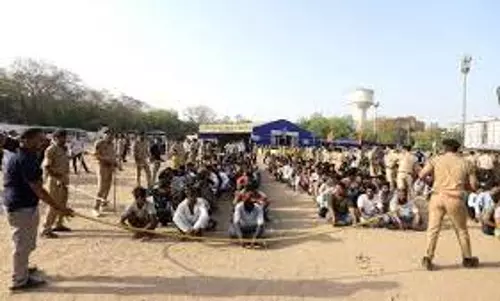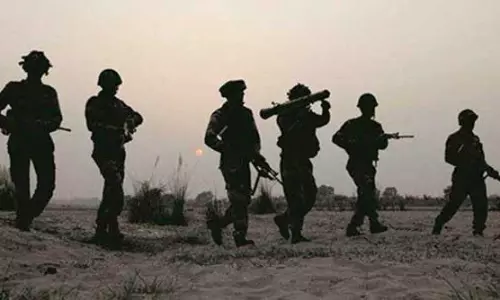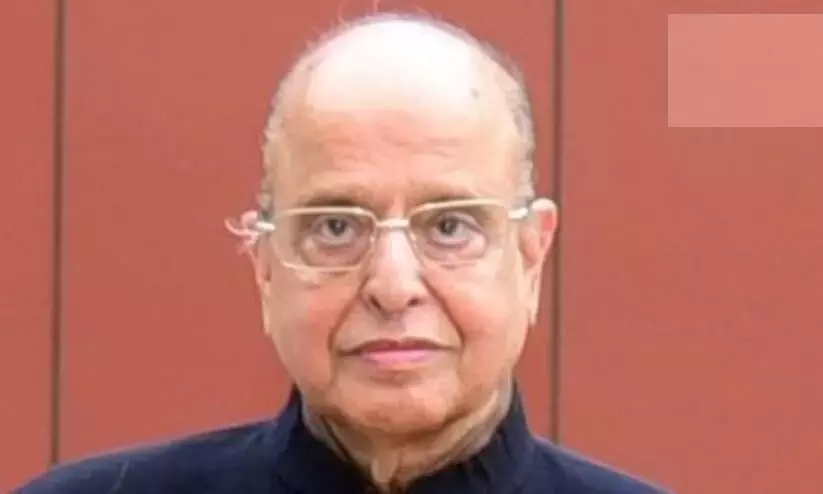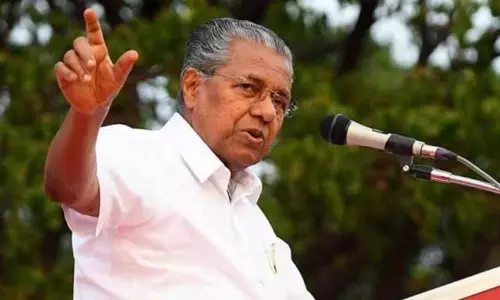
Yemen’s instability rooted in colonial history and tribal divisions
text_fieldsThe latest round of the Yemeni Civil War has raged for over a decade. Since the British withdrawal from South Yemen in 1967 the country has scarcely had a day of peace.
The Yemeni Civil War is chiefly a case of Houthi insurgents (who are Ismaili and Zayidi Shias) against the rest of Yemen who are Sunnis. The Houthis take their name from the powerful Al Houthi family.
Besides being divided into Sunni and Shia, the people of Yemen are subdivided into tribes each with their own chieftain. As in most of the Arab World in Yemen, family is everything. A Yemeni can usually recite his male line ancestors back several generations. Marriages are often between first cousins.There is no right and wrong: there is only family and not family.
40% of Yemenis are Shia and the Shia are almost entirely in the north-west of the country.
Yemen was a distinct nation within the Arab family for several centuries. The Ottoman conquered what later became misleadingly known as North Yemen – actually it was more the west of the country than the north. The principal city of the Ottoman province was Sana’a. North-Yemen is very mountainous, and the Shia are a slight majority there. South Yemen is flatter and almost exclusively Sunni. So-called ‘South Yemen’ is really the east of the country.
In the 19th century the British acquired the port of Aden as a way station en route to India. The Britishers developed the port into a major entrepot. It became surprisingly cosmopolitan. Many Indians moved there. There was also a significant Jewish community there who had been in Yemen since the 1st century AD.
By the 1960s Aden has Hindus, Sikhs, Zoroastrians, Jews, Christians and of course Muslims. The people who lived there included Somalis, Iranians and people from all over the Arab World. It was by far the most sophisticated centre for trade and finance on the Arabian Peninsula. Back then Dubai was little more than a fishing village.
The British called South Yemen by the name ‘South Arabia’. Britons often referred to it as ‘Aden’ because they did not care about the land much beyond the port. They signed treaties with the hereditary chieftains who governed the tribes. But the British Administration had little interest in the hinterland.
In the early 1960s some Yemenis were inspired by Nasser’s Arab nationalism and anti-imperialism. They agitated for independence. In 1962 London announced it would pull out of Yemen within 6 years. In fact, it pulled out in 5 years. Some Yemenis wanted independence. Marxist-tinged terrorists attacked the British Army. Over a few years of desultory fighting, 60 British soldiers were killed. Yemeni nationalists had managed to convince the United Kingdom to grant independence. It was a decision that many came to rue.
On independence South Yemen became the People’s Republic of South Yemen. This communist state allied with the USSR. Most foreigners left. The economy and trade collapsed. Many of the Yemeni intelligentsia also decamped. The once thriving and colourful port city became a communist hellhole.
The communists in Yemen were riven in faction fighting. There was also major hostility towards the Jewish minority. They were suspected of being Zionist agents. The Jews were almost indistinguishable from the Muslims. They lived just the same as Muslim Yemenis except for one hour a week in the synagogue.
Yemeni Jews even practised polygamy. But suspicion of them was so intense and there were physical attacks. Yemeni Jews felt so unsafe that virtually the entire community emigrated. They mostly shifted to Israel. Yemen wanted to weaken Israel and had ended up strengthening it.
By the 1980s many Yemenis had emigrated in search of work. Many of them did menial jobs in Saudi Arabia. It was quite a come down. Yemen had once been the most advanced economy on the Arabian Peninsula. It is now one of the poorest countries in Asia.
In 1991 the USSR was dissolved. South Yemen saw sense: communism was a dead end. South Yemen and North Yemen united. Ali Abdullah Saleh Afash was made President of the Republic of Yemen. Saleh was a northerner and a Shia. However, they did not manage to unite their armies for several years. There was constant fighting.
Yemen needed foreign expertise to develop its oil resources. Foreign oil workers were frequently taken hostage.
In 2014 the civil war broke out.
The Royal Saudi Arabian Air Force has been instrumental in helping the Sunnis. RSAAF struck civilian targets again and again. To some extent this is sheer incompetence. To some extent, it is malice. Saudi Arabia is extremely nepotistic, and people are made air force pilots on the basis of familial connections even if they are no use.
The humanitarian situation in Yemen is dire. Many people have died of malnutrition occasioned by the war.
Bahrain and the United Arab Emirates have also used aviation to aid the Sunni majority. This allows them to kill the Houthis without the Bahrainis and Emiratis risking many of their men being killed.
Iran has assisted the Houthis. Iran is the sponsor of the Shia world. Iran funds, arms, trains and provides intelligence to the Houthis. It is a proxy war between Saudi Arabia and Iran.
The Western World perceives Iran as a threat to its economic interests. The United States and the United Kingdom want Saudi Arabia to win this one.
Al Qaeda has been active in Yemen since the 1990s. Al Qaeda attacked the United States vessel USS Cole off the coast of Yemen in 1998. Osma Bin Laden was Yemeni on his father’s side. Al Qaeda is of course viciously anti-Houthi. The United States does not like to be reminded that in Yemen it is on the side of Al Qaeda.
The UN estimates over 400 000 people have been killed in Yemen. Yemen gets less media attention than it deserves.
Like much of the Muslim World, the Houthis detest Israel. They have launched missiles at Israel, but all are shot down. They have also attacked merchant shipping in the Red Sea as a means of pressuring European countries to restrain Israel. Even Sunni Yemenis applaud this.
There is no end to the war in sight.























